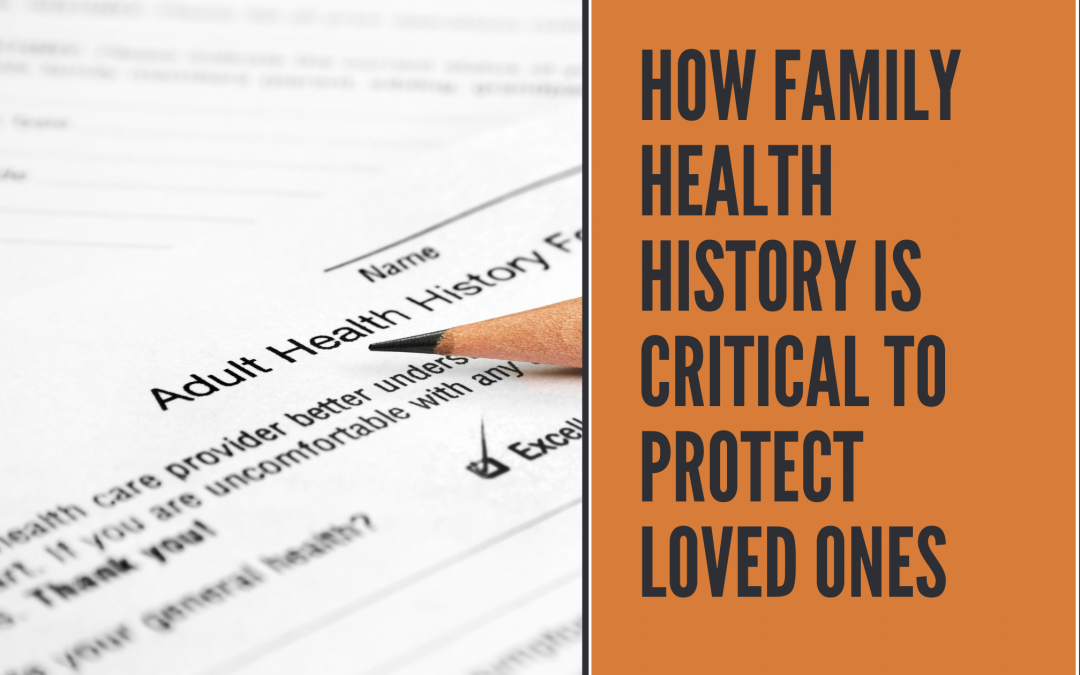Are you gathering with family members this month for Thanksgiving? Good food and good stories! Well, Thanksgiving is also National Family History Day this year. As odd as it might seem, this is also a great time to learn more about medical conditions that have affected your relatives. And more importantly, discover illnesses that could affect you or your children.
Medical histories should be somewhere easy to find. And not just left to memory.
How Are You Feeling Uncle Ed?
Some family members might not be open to talking about their diseases. But others — you know which relatives we are thinking about — will tell you every ouch, pain, and doctor visit they’ve had in the past year.
The Centers for Disease Control and Prevention (CDC) suggests you ask these questions:
- Do they have any chronic diseases, such as heart disease or diabetes? Or any health conditions, such as high blood pressure or high cholesterol?
- Have they had any other serious diseases, such as cancer or stroke? What type of cancer?
- How old were they when each of these diseases or health conditions were diagnosed? (If your relative doesn’t remember the exact age, knowing the approximate age is still useful.)
- What is your family’s ancestry? From what countries or regions did your ancestors come to the United States?
You can’t change your family history. But by knowing about it, you can reduce unhealthy behaviors like smoking or lack of exercise. You can sign up for earlier breast or colon cancer screenings.
When You Need Family Health History in Stressful Situations
For example, what happens if you or a family member are in an auto accident far from home? Do you have all your family health history with you? You don’t travel far? What about Thanksgiving? Not to put a scare in you, but there will be many people traveling this year. Will you be on the road?
COVID kept a lot of us home last year. No visits to grandma or mom’s house. This year that won’t be the case. The National Safety Council estimates 55,000 people will be in non-fatal auto accidents.
Progressive Insurance created a specific holiday comparison of car accident claims. These were for the two weeks before & after the Thanksgiving holiday weekend.
- Car accidents jumped on the Wednesday before Thanksgiving by 25%.
- Car accidents also went up 20% on Thanksgiving night.
- Black Friday isn’t a Thanksgiving day, but it is part of the weekend. It shows a 34% spike in car accidents.
- The largest percentages of out-of-state accidents appear on the Sunday of Thanksgiving weekend.
What we’re saying here is that accidents are a fact of life for Thanksgiving weekend. Drive carefully, and you should be ok. But, what if the worst does happen? You or a family member being able to quickly give medical responders accurate health info could be life-saving.
Check Out the Family Health History Portrait
The Centers for Disease Control and Prevention also advises that you record the information. Then remember to update it whenever you learn new family health history information.
There are many ways you can do this. Put info on index cards. Use a binder. Create a spreadsheet.
And then there is My Family Health Portrait. The CDC recommends this.
This free tool is easy to get to on the web and simple to fill out. It assembles your information and makes a family tree that you can download. This is private–it does not keep your information. Your family health history is available to you to share with family members or send to your doctors.
You may feel uncomfortable asking serious questions at a fun event like Thanksgiving. Ok. Then make a connection with the relation and leave it open that you will keep in touch. And then with a follow-up call, ask your questions.
The Centers for Disease Control and Prevention (CDC) put it beautifully in a recent article. “You’re asking not just for your own health but for the health of everyone in your family.”
This post was written by Anthony M Scialis. Find him here.

